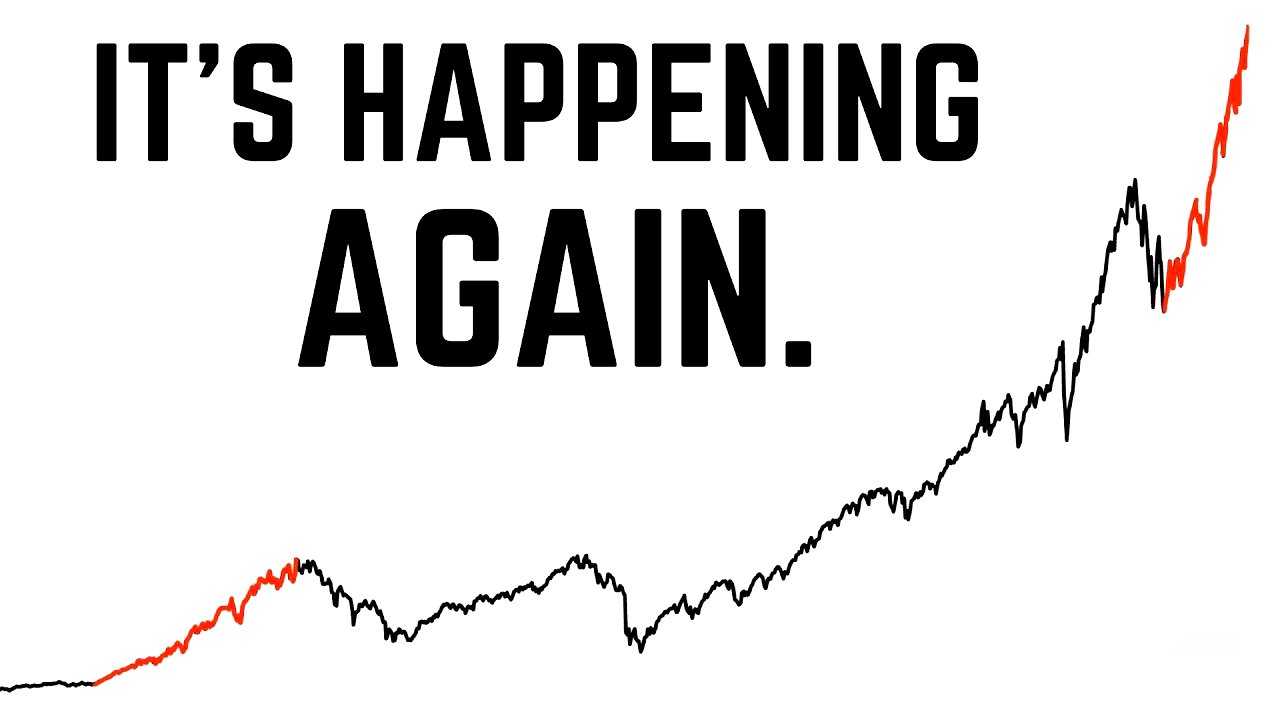TLDR;
This video discusses the recent surge in the US stock market, which has seen a 60% jump in the last two years. This rally is one of the strongest in US history, but it's happening at a time when consumer sentiment is low, and a record number of Americans are living paycheck to paycheck. The video argues that this is a wealth inequality crisis, with money flowing from the real economy into financial assets at an unprecedented rate. The video explores the relationship between inflation and stock market corrections, concluding that low inflation is a key factor in the current bull market. However, the video also warns that low inflation is a symptom of a diseased economy with high levels of inequality.
- The US stock market has seen a significant surge in recent years, but this is happening alongside low consumer sentiment and high levels of wealth inequality.
- The video argues that low inflation is a key factor driving the current bull market, but it's also a symptom of a struggling economy.
Inflation and the Stock Market [0:00]
The video begins by highlighting the recent surge in the US stock market, which has seen a 60% jump in the last two years. This is a historically strong rally, but it's happening at a time when consumer sentiment is low, and a record number of Americans are living paycheck to paycheck. The video argues that this is a wealth inequality crisis, with money flowing from the real economy into financial assets at an unprecedented rate. The video then explores the relationship between inflation and stock market corrections, noting that in the past, significant stock market corrections have often followed periods of rising inflation. The video points to examples in 2021, 2011, and 1987, where inflation spiked, and the stock market subsequently corrected. However, in 1996, inflation declined, and the stock market continued to rise. The video concludes that low inflation is a key factor in the current bull market, as it typically leads to lower interest rates and economic stability.
Low Inflation and a Diseased Economy [3:57]
The video acknowledges that while low inflation is currently supporting the stock market, it's not necessarily a sign of a healthy economy. The video argues that low inflation is actually a symptom of a diseased economy with high levels of inequality. The US consumer is facing low confidence, low personal savings, and high debt burdens, which limits their ability to afford higher prices. This, in turn, keeps inflation low. However, corporate profit margins are at record highs, representing 133% of GDP growth. This excess profit is being reinvested back into financial assets, further driving up their value. The video concludes that as long as inflation remains low, financial assets are likely to continue rising. However, the video also notes that the recent decline in new tenant rent prices suggests that inflation may be starting to trend lower, which could potentially impact the stock market in the future.









